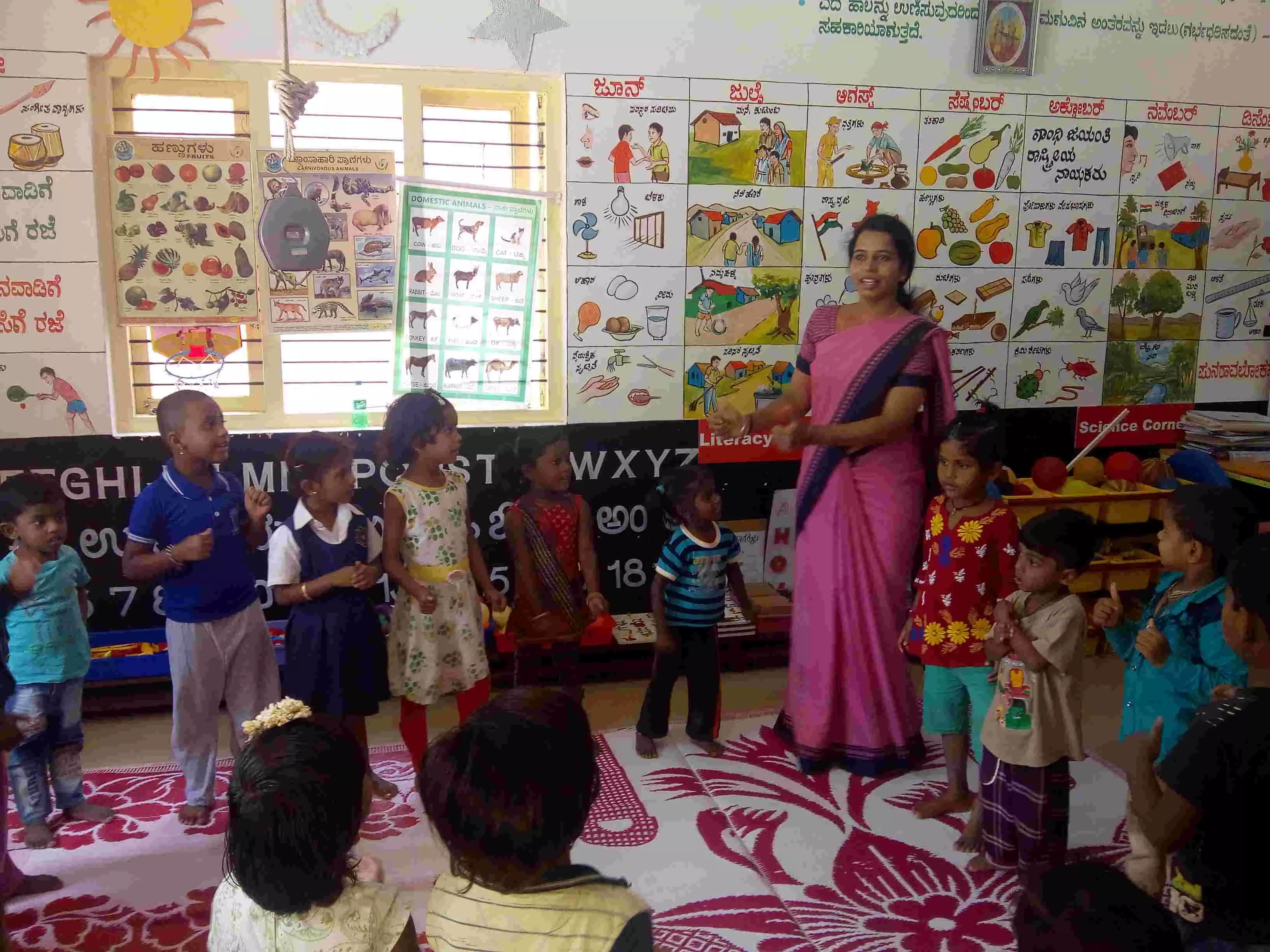Nexus of Good: An act of upliftment
ICDS centres, which form the bedrock of mother and child care, have been rejuvenated from a pathetic state to a lively one by SMSWRWS in the Sundarbans

Those who live in the heartland of the country don’t know much about Sundarban. Most of us have come to know about the area through books like “Hungry Tide” by Amitav Ghosh and “Midnight’s Children” by Salman Rushdie. To the outside world, the region is known primarily on account of tigers and mangroves. The area, not very far from Kolkata, is covered by rivers and deltas. Hence, it is difficult to commute between various deltas and the only source of transportation is by boat. Development hasn’t had an impact in most of the region. There is abject poverty. Consequently, the residents suffer various problems relating to health, quality education, livelihoods and daily basic needs etc.
Sandeshkhali Maa Saroda Women & Rural Welfare Society (SMSWRWS) has been engaged in North Sundarban of West Bengal since 2009 in the field of Women Empowerment, Education, Health, Drinking Water, Livelihoods, Environment, and Relief etc. Their volunteers are working at the grass root level to understand the problems facing the denizens of Sundarban. Post identification of such problems, an attempt is made to solve them despite limited resources and capacity. These problems relate to poor quality of education, inadequate healthcare facilities, and poor (on occasion, non-existent) infrastructure. These miserable conditions have been periodically reported in the media but have made no difference.
The Integrated Child Development Scheme (ICDS) launched country-wide in 1975 aims at the holistic development of children and the empowerment of mothers. It is a Centrally-Sponsored scheme. The scheme primarily runs through Anganwadi centres. The chief objectives of the Integrated Child Development Services (ICDS) scheme were to improve the nutritional and health status of children in the age group 0-6 years; to lay the foundation for proper psychological, physical and social development of the child; to reduce the incidence of mortality, morbidity, malnutrition and school dropout; to achieve effective coordination of policy and implementation amongst the various departments to promote child development; and to enhance the capability of the mother to look after the normal health and nutritional needs of the child through proper nutrition and health education. Like many other schemes of the government, ICDS has also suffered in the Sundarban region.
Sandeshkhali-I block of North 24 Parganas of West Bengal has 351 ICDS centres but most of them have no building of their own. These centres are either being run in a rented house or an open place. Even for those that have their accommodation, the buildings are in a bad shape. Some of them have no roof, no water supply, no toilets and no electricity. For example, ICDS centre No-25 where the number of students, including mothers, is 86 has no safe room for reading. The only room available is without a roof. There is no kitchen room or water supply. Water has to be sourced from a long distance to cook food for the children. This water too isn’t fit for consumption. In the absence of toilet facilities, children go out in the open which is not healthy for them. Mothers and pregnant women face similar problems. The absence of appropriate lighting gets compounded during the rainy season. Not only does it impact reading, but it also creates additional hazards for cooking.
The dismal state of affairs at Sandeshkhali was brought to the notice of the local administration by the Society. The Society was informed that many ICDS workers had submitted a written report regarding the present position of their ICDS centre. However, on account of the paucity of funds, no action could be initiated. The Society then sought permission to take steps to undertake reconstruction. This permission was granted to them by the Child Development officer of Sandeshkhali-I Block.
On getting the requisite permission, discussions were held with the Sub-Assistant Engineer of the Block Development Office of Sandeshkhali-I for making the layout and budget. He visited the area and advised the Society to construct a separate building for the kitchen. This was agreed upon. The Engineer also provided the details relating to the budget within 7 days. Inputs, including estimates, were also taken from a local mason for the construction of the ICDS main building as well as the kitchen, from a plumber for submersible deep bore wells, from a local painter and from a solar company. The estimate was revised accordingly. Thereafter, a hunt was launched for a funding agency. Some funds were contributed by Linde India Limited and the work was started. First, the old building was demolished. To reduce the labour cost, volunteers worked with skilled masons. The entire work was completed within 3 months and inaugurated for children and mothers. To attract children, walls were covered with pictures, sketches and paintings. Writing pads, colour-pencil boxes, and other items were distributed among children. The ICDS centre was now alive once again.
The persistent efforts of society have started bearing fruit in this remote and inaccessible region of the country. The West Bengal government in its letter dated 22nd of April, 2022 recognised the pathetic conditions of ICDS centres and resolved to take up 100 such centres for renovation and for providing potable water. Thus, not only did the Society work on its own to demonstrate that the state of affairs could improve, but it also managed to create awareness and subsequent realization among decision-makers.
What has been accomplished by the Society under the inspired leadership of Subhashis Mondal, a Nexus of Good Awardee may appear to be small but is truly exemplary. It presents a wonderful example of Nexus of Good wherein a good initiative is getting scaled through a public-private partnership.
Views expressed are personal



